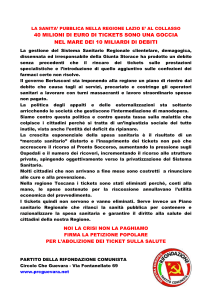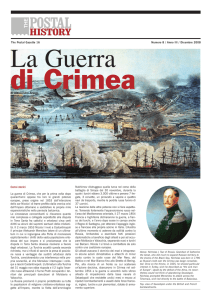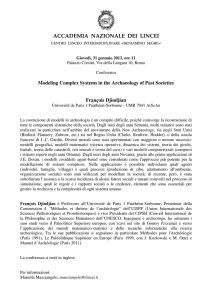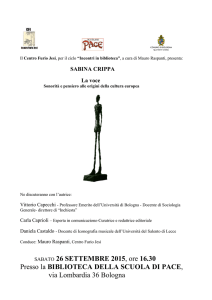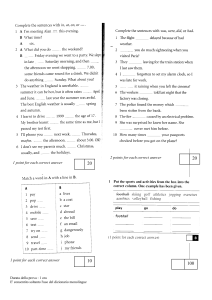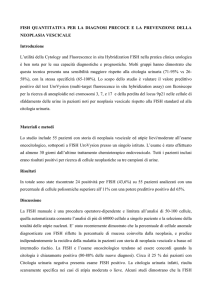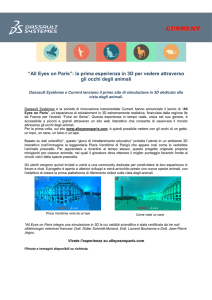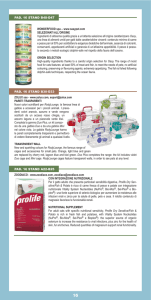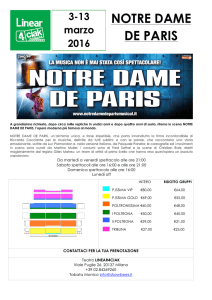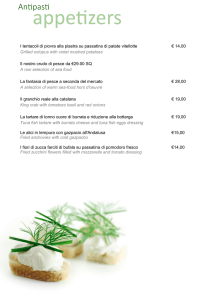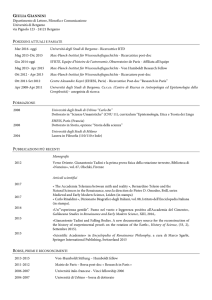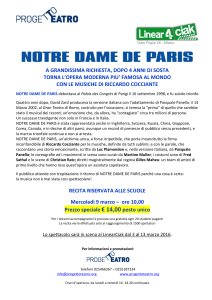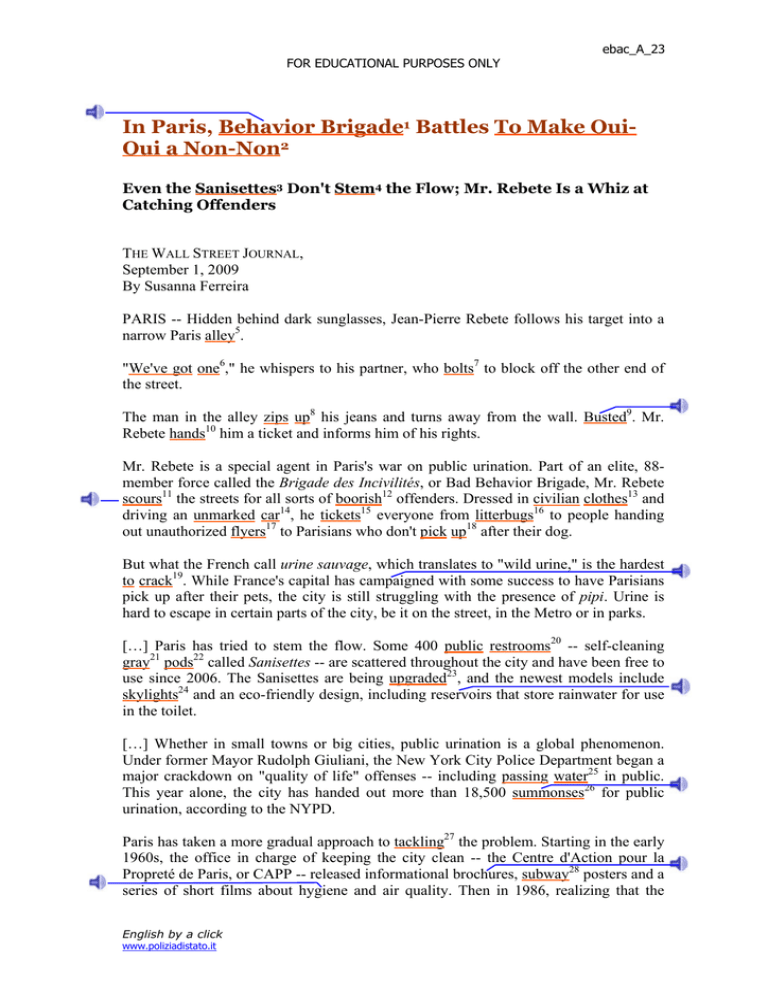
FOR EDUCATIONAL PURPOSES ONLY
ebac_A_23
In Paris, Behavior Brigade1 Battles To Make OuiOui a Non-Non2
Even the Sanisettes3 Don't Stem4 the Flow; Mr. Rebete Is a Whiz at
Catching Offenders
THE WALL STREET JOURNAL,
September 1, 2009
By Susanna Ferreira
PARIS -- Hidden behind dark sunglasses, Jean-Pierre Rebete follows his target into a
narrow Paris alley5.
"We've got one6," he whispers to his partner, who bolts7 to block off the other end of
the street.
The man in the alley zips up8 his jeans and turns away from the wall. Busted9. Mr.
Rebete hands10 him a ticket and informs him of his rights.
Mr. Rebete is a special agent in Paris's war on public urination. Part of an elite, 88member force called the Brigade des Incivilités, or Bad Behavior Brigade, Mr. Rebete
scours11 the streets for all sorts of boorish12 offenders. Dressed in civilian clothes13 and
driving an unmarked car14, he tickets15 everyone from litterbugs16 to people handing
out unauthorized flyers17 to Parisians who don't pick up18 after their dog.
But what the French call urine sauvage, which translates to "wild urine," is the hardest
to crack19. While France's capital has campaigned with some success to have Parisians
pick up after their pets, the city is still struggling with the presence of pipi. Urine is
hard to escape in certain parts of the city, be it on the street, in the Metro or in parks.
[…] Paris has tried to stem the flow. Some 400 public restrooms20 -- self-cleaning
gray21 pods22 called Sanisettes -- are scattered throughout the city and have been free to
use since 2006. The Sanisettes are being upgraded23, and the newest models include
skylights24 and an eco-friendly design, including reservoirs that store rainwater for use
in the toilet.
[…] Whether in small towns or big cities, public urination is a global phenomenon.
Under former Mayor Rudolph Giuliani, the New York City Police Department began a
major crackdown on "quality of life" offenses -- including passing water25 in public.
This year alone, the city has handed out more than 18,500 summonses26 for public
urination, according to the NYPD.
Paris has taken a more gradual approach to tackling27 the problem. Starting in the early
1960s, the office in charge of keeping the city clean -- the Centre d'Action pour la
Propreté de Paris, or CAPP -- released informational brochures, subway28 posters and a
series of short films about hygiene and air quality. Then in 1986, realizing that the
English by a click
www.poliziadistato.it
FOR EDUCATIONAL PURPOSES ONLY
ebac_A_23
CAPP needed more teeth29 in its fight against uncivilized behavior, the mayor's office
transferred jurisdiction30 from the police to the new Bad Behavior Brigade.
Active enforcement by the Brigade, combined with aggressive advertising, managed to
eliminate the dog-droppings31 problem rather quickly, city officials say. Erick Orblin,
CAPP director, says he has noticed a decline in the Parisian dog population since the
crackdown began. Some residents would now prefer to own an indoor cat or a fish than
have to stoop and scoop32 on the sidewalk, he says.
But the urine problem is a different matter. Of the 20,000 total infractions the Brigade
records every year, one quarter involve people and dogs caught illegally relieving
themselves33 in public. In 2007, the Brigade handed out 1,200 tickets to adults for
public urination. In 2008, that number rose to 1,800. By the end of June this year, the
Brigade had already handed out 1,100 tickets. City officials say it is hard to determine
whether the rising number is due to a growing problem or to the crackdown34 by Mr.
Rebete and his colleagues.
There are other challenges. Brigade members don't target35 homeless people, travelers,
or people without documentation. That is because, without identification or a Paris
address, offenders have no way of receiving court documents in the mail. Fines can be
as high as €450 ($644), but will be reduced to a maximum of €35 starting next year.
For Mr. Rebete, the 53-year-old Brigade agent, public hygiene is about basic civic
values. […]
"There's a lack of civility," said Mr. Rebete, frowning36 at a puddle37 on a sidewalk. "I
remember walking around with my grandfather 40 years ago, and you'd pick up every
bit of paper that fell to the street."
The Brigade works in shifts38 from 6 a.m. to 11 p.m., and agents always go out in
teams of two. Violent resistance from offenders, though not common, is sometimes
possible, Mr. Rebete said.
On their recent afternoon shift, Mr. Rebete and his partner had just begun patrolling the
streets in their compact Citroen car when they spotted39 the first offense of the day:
illegal trash dumping40. Mr. Rebete jumped out, slid on41 a pair of latex gloves and
ripped open42 the stray43 trash bag. Inside, he found what he was looking for: a sheet of
paper with the name and address of a nearby business, the likely44 guilty party45.
[…] Minutes after Mr. Rebete ticketed the urinator he caught in the alley, another
suspect headed46 the same way. Like the previous offender, the man stepped off47 to
the left, leaned close to the wall and unzipped.
Mr. Rebete smiled and walked quietly toward48 him, fishing49 for the book of tickets
tucked50 into his belt.
J∼∼K
English by a click
www.poliziadistato.it
ebac_A_23
FOR EDUCATIONAL PURPOSES ONLY
Comprehension check: True or False
Answer
Answer
Answer
Answer
Answer
Answer
Answer
Answer
1. Open‐air mobile toilets have helped to solve the problem once and for all. 2. Mr. Rebete is a uniformed agent. 3. In Paris, ad hoc campaigns helped to increase people's awareness of the requirement to clear up after their pets. 4. Also NYPD is tackling the problem of outdoors peeing. 5. The Bad Behavior Brigade has been fighting uncivilized behaviors since 1986. 6. The rising number of tickets handed to adults for public urination is due to increased awareness. 7. Fines are given also to tourists and foreigners. 8. According to Mr. Rebete, back in the Seventies, people showed more respect for civic values. Curiosità sui verbi onomatopeici Chi ha inventato il modo di scrivere i vari rumori che compaiono sui giornali a fumetti? Essi sono presi in prestito dal vocabolario dei verbi inglesi. Eccone un breve elenco: PURR fare le fusa HISS fischiare, sibilare RIP strappare, lacerare CRASH fracassare CRACK spezzare THUMP; THUD fare un tonfo SPLASH spruzzare, schizzare SOB singhiozzare GRUNT grugnire, brontolare BANG sparare BOOM esplodere ZIP; HISS sibilare SLAM sbattere SIGH sospirare GROWL ringhiare, grugnire GULP deglutire TWEET; CHIRP pigolare CRUNCH sgranocchiare CLANG risuonare SNAP; SMACK schioccare TINGLE tintinnare ZOOM, RUMBLE rombare KNOCK bussare ROAR ruggire RING suonare, squillare SQUEAK scricchiolare CLAP applaudire CREAK cigolare YAWN sbadigliare MUMBLE borbottare (tra sé e sé) English by a click
www.poliziadistato.it
FOR EDUCATIONAL PURPOSES ONLY
ebac_A_23
Behavior Brigade: in francese Brigade des Incivilités: Brigata anti‐inciviltà o Brigata delle inciviltà. Il sostantivo behavior [BE: behaviour] significa: comportamento, condotta. 1
To make Oui‐Oui a Non‐Non: gioco di parole : letteralmente, fare del/rendere il sì‐sì un no‐no. Ma è chiara la vicinanza fonetica con l’espressione francese “faire pipi”. 2
Sanisettes [sanisette]: si tratta delle toilette pubbliche gratuite di Parigi, dei monoblocchi prefabbricati automatizzati. 3
Stem [to stem, stemmed, stemming, stems]: qui: stop the flow of a liquid: arrestare, tamponare. 4
5
Alley: a narrow street or passageway between or behind city buildings: vicolo, viuzza. We’ve got one [to get, got, got/gotten, getting, gets]: eccone uno, ne abbiamo beccato uno. 7
Bolts [to bolt, bolted, bolting, bolts]: qui (verbo intransitivo): to move or spring suddenly: fare un balzo, scattare. Come verbo transitivo, to bolt significa: chiudere col catenaccio, sprangare. Il sostantivo bolt significa infatti catenaccio, chiavistello. 8
Zips up [to zip, zipped, zipping, zips]: chiudere la lampo. Si tratta di uno dei numerosi verbi onomatopeici esistenti nella lingua inglese (vedi scheda in fondo all’articolo). 9
Busted: [to bust, busted/bust, busted/bust, busting, busts]qui: to catch and punish somebody for doing something illegal or against the rules ( informal ): prendere, scovare, beccare. 10
Hands [to hand, handed, handing, hands]: to pass something to somebody by hand. 11
Scours [to scour, scoured, scouring, scoured]: to examine minutely: battere, perlustrare. 12
Boorish: lacking in delicacy or refinement: villano, rozzo. 13
Civilian clothes: in borghese o in abiti civili. Divisa si traduce uniform; a uniformed policeman: un poliziotto in divisa. 14
Unmarked (police) car: auto civetta. 15
Tickets [to ticket, ticketed, ticketing, tickets]: AE: to issue a ticket or a fine as a penalty: multare, fare la multa. In BE, con lo stesso significato, si usa il verbo to fine (for/for doing) che, diversamente dall’italiano, non necessita della preposizione, quindi, multare qualcuno di 100 euro si tradurrà: to fine somebody 100 euros. 6
English by a click
www.poliziadistato.it
FOR EDUCATIONAL PURPOSES ONLY
16
ebac_A_23
Litterbugs [litterbug]: somebody who leaves litter, especially in public places or outdoors: persona che getta i rifiuti per strada. 17
Flyers [flyer, anche: flier]: volantino, opuscolo. 18
Pick up [to pick, picked, picking, picks]: qui: to collect or gather: raccogliere, tirare su. 19
To crack [cracked, cracking, cracks]: qui: to decipher or solve something such as a code, puzzle, or problem, to overcome: risolvere, sconfiggere, superare. 20
Public restrooms [AE: restroom]: a room equipped with toilets and lavatories for public use. In BE: washroom, toilet, lavatory. 21
Gray [BE: grey]: relating to an achromatic color of any lightness between the extremes of black and white. 22
Pods [pod]: modulo, cabina. 23
Upgraded [to upgrade, upgraded, upgrading, upgrades]: qui: to improve, especially something that was old or outdated. 24
Skylights [skylight]: an overhead window, as in a roof, admitting daylight: lucernario. 25
Passing water [to pass, passed, passing, passes]: to pee, to urinate. 26
Summonses [summons]: order by authority to appear: an authoritative demand to appear in a specific place at a specific time: citazione, ingiunzione. 27
Tackling [to tackle, tackled, teckling, teckles]: qui: to engage or deal with.: affrontare, contrastare. In Italia il sostantivo tackle è noto soprattutto agli appassionati di calcio e significa: contrasto tra giocatori avversari per il possesso della palla. In inglese ha lo stesso significato, con riferimento al calcio (soccer), ma si usa anche in relazione al football americano e al rugby: the act of stopping an opposing player carrying the ball, especially by forcing the opponent to the ground. 28
Subway: AE per underground. La metropolitana di Londra è chiamata anche familiarmente tube. 29
Needed more teeth [need, needed, needing, needs]: doveva essere più incisiva, doveva essere rafforzata, avere più mordente. 30
Jurisdiction: qui: authority or control: competenza. 31
Dog‐dropping: dropping sta per feces: i bisognini dei cani. English by a click
www.poliziadistato.it
FOR EDUCATIONAL PURPOSES ONLY
32
ebac_A_23
Scoop [to scoop, scooped, scooping, scoops]: to remove an amount of a liquid or solid substance with a scoop or similar object: raccogliere. Scoop infatti significa paletta, ma anche mestolo. È anche il cucchiaio o porzionatore apposito che serve per fare le palle di gelato. Infatti il gelataio anglofono, per sapere quanti gusti volete, vi chiederà: How many scoops? I gusti si chiamano anche flavour [AE flavor]. 33
Relieving themselves [to relieve, relieved, relieving, relieves]: qui: eliminate urine/feces. In generale, il verbo to relieve significa: alleviare, attenuare. 34
Crackdown: a strong and decisive measure taken against an undesirable or illegal activity or against somebody involved in such activity (informal): misure restrittive, provvedimenti severi, giro di vite. 35
Target [to target, targeted, targeting, targets]: to make a person or thing the focus or object of something. 36
Frowning [to frown, frowned, frowning, frowns]: to wrinkle the brow, as in thought or displeasure: aggrottare le sopracciglia, corrucciarsi. 37
Puddle: a small pool of water. 38
In shifts: a turni, a turnazione. 39
Spotted [to spot, spotted, spotting, spots]: qui: to see or detect somebody or something suddenly: avvistare, individuare. 40
Illegal trash dumping: scarico illegale di rifiuti. Waste disposal è lo smaltimento dei rifiuti. 41
Slid on [to slide, slid, sliding, slides]: infilare. 42
Ripped open [to rip, ripped, ripping, rips]: aprire (strappando o lacerando). 43
Stray: qui: scattered or separated: lasciato in giro, isolato. 44
Likely: probable, plausible. 45
Guilty party: colpevole. 46
Headed [to head, headed, heading, heads]: to proceed or go in a certain direction: dirigersi. 47
Stepped off [to step, stepped, stepping, steps]: to walk a short distance or to a specific place. 48
Toward [also: towards]: in the direction of. English by a click
www.poliziadistato.it
FOR EDUCATIONAL PURPOSES ONLY
49
ebac_A_23
Fishing (for) [to fish, fished, fishing, fishes]: qui: to search, to feel around with the hands in order to find something. To fish for information: cercare informazioni. To fish for compliments: andare in cerca di complimenti. Il primo significato del verbo to fish è ovviamente quello di: pescare. E per finire, tre espressioni idiomatiche con il sostantivo fish (per il cui uso si rimanda alla scheda Ebac “Il plurale”): drink like a fish: bere come una spugna; have other fish to fry: avere altre gatte da pelare; be like a fish out of water: essere o sentirsi come un pesce fuor d’acqua. 50
Tucked [to tuck, tucked, tucking, tacks]: qui: to store: infilare, mettere via. English by a click
www.poliziadistato.it

